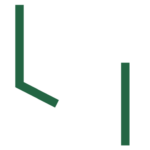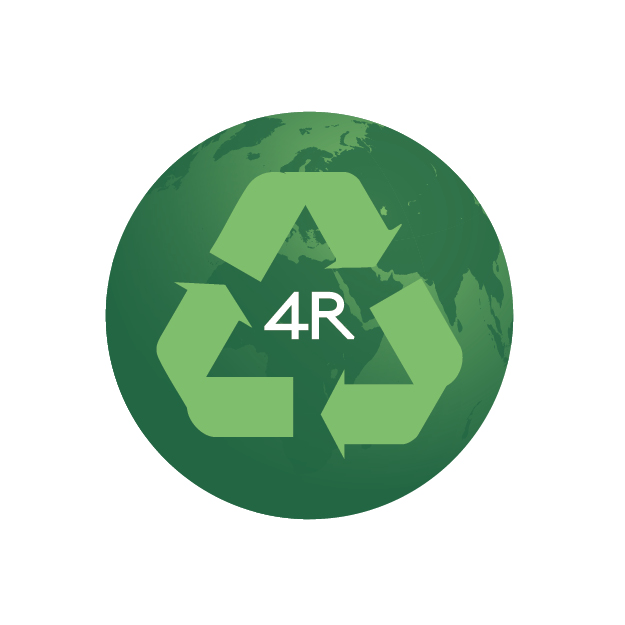Welcome to the 4R Ecosystem
The forum kicked off with a welcome and networking lunch, providing attendees with the opportunity to connect and exchange ideas. The opening session, by Jussi Lahtinen, Ecosystem Lead at CLIC, introduced the 4R ecosystem’s evolution from 4Recycling to 4R, now incorporating Refuse, Reduce, and Reuse alongside Recycling to address upstream solutions. The initiative has been running since 2019 and has engaged over 450 organizations, prepared 29 projects with a funding volume of €150 million, and collaborated with 250+ international actors across 50 industries. The diversity of stakeholders present in the event—from academia, business, governance, capital, and community— highlighted one of the ecosystem’s founding principles: collaboration is essential for achieving systemic change.
Tanja Suni, Head of Exploitation and Impact at CLIC, further set the scene by discussing the triple-planetary crisis and the paths to achieving positive impact through research, development, and innovation (RDI).
Current plastics policy matters
The policy part of the program was opened by an insightful update on the UN Plastics Treaty by Tuulia Toikka, Ministerial Adviser and Finnish Chief Negotiator for the treaty. From Tuulia we learned that despite great progress, an agreement for the content of the treaty was not able to be finalised in the last meeting. The last meeting of the Intergovernmental Negotiating Committee, held in Korea in 2024, saw 110 countries sign text addressing plastic production, while a minority (oil and plastic producing countries) resisted. In addition to a challenging geo-political situation, the sheer number of open issues and lack of time to address them all proved a significant challenge. The meeting had to be suspended and negotiations on the remaining issues will continue in the first half of 2025, when there is hope for reaching an agreement on the Treaty’s text.
A highlight of the event was the keynote address by Emilia Nygård, Chair of the Board at ReGeneration2030, who stressed the importance of amplifying youth voices in driving sustainable change. ReGeneration2030, a youth-led initiative, is dedicated to advancing systemic sustainability across the Nordic and Baltic Sea regions. In her presentation of the ReGeneration2030 Position Paper, Emilia underscored the urgent need for bold, collaborative action to secure a sustainable future.
The forum also showcased success stories on innovative approaches to advancing the circularity of plastics.
Anssi Tuulenmäki, CEO of the Museum of Technology, discussed sustainable packaging and shared a great example of creating engagement with youngsters around the topic. Using a highly interactive learning environment (called “HOW”), youngsters got to learn about topics like production, raw materials, recycling and reuse through a deeply engaging experience. Participants’ feedback on the experience showed both engagement and a deeper understanding of these important topics.
Jaana Koivisto, Project Manager at Ecofellows Ltd., shared valuable insights from the TREASoURcE EU project, which focused on engaging citizens through innovative initiatives like a toy swap and hard plastic waste collection. The toy swap, held during the Christmas season, involved collecting toys in advance and distributing free vouchers to participants. During the event, families could use these vouchers to choose new toys and sports equipment from the collected items. The concept was highly appreciated by participants and received overwhelmingly positive feedback.
The hard plastic waste collection campaign in the Tampere region aimed to assess whether consumer-supplied hard plastic waste could support a viable business case. The pilot, which ran for several months, successfully engaged hundreds of participants and collected an impressive 30 tons of hard plastic waste. Encouraged by the pilot’s success, the local municipal waste management company, Pirkanmaan Jätehuolto, is now considering introducing a permanent hard plastic collection system in the Tampere region.
Kaisa Simola, Communications Coordinator at CLIC, shared her experience of influencer marketing to inspire sustainable consumption. A creative approach to raising awareness, the campaign proved very successful, attracting 467k views and 17k likes to 5 videos on topics like packaging legislation, sorting and recycling, purchase decisions and the recycling industrial process. Kaisa also highlighted the key to success for such an approach: finding the suitable influencer, both in terms of target group and especially in terms of the addressed topic and personal values of the influencer.
Panel discussion
Anna Tenhunen-Lunkka, Head of Circular Economy at CLIC, moderated a panel discussion, where the speakers delved into the importance of pilots and tests in driving sustainable change. The speakers highlighted their experiences in turning ideas, tests, pilots, showrooms, policy or position papers into actual practices and sustainable change. Pilots and tests are crucial in bridging the gap between theoretical concepts and practical implementation. Through various formats to try and experiment, it is possible to identify potential challenges early on and adapt strategies accordingly. For instance, held pilots have provided valuable insights into consumer behavior and logistical hurdles. By sharing these findings, the collective input has influenced broader industry practices and driven sustainable change on a larger scale. The scaling of TREASoURcE hard plastic waste collection campaign from a pilot to something permanent is a great example of this.
Workshops
The afternoon sessions featured parallel workshops focusing on accelerating reusable packaging systems, setting up B2B plastic waste collection, and innovative approaches to consumer engagement and citizen science methods. These workshops provided a platform for in-depth discussions and collaborative problem-solving.
Unlocking the potential of reusable packaging systems
The reusable packaging workshop, led by Erwan Mouazan from the University of Vaasa, explored the barriers, drivers, and opportunities of reusable packaging systems from the perspectives of key stakeholders—packaging producers, retailers, consumers, and reuse operators. The session, linked to the Horizon Europe-funded Stopp project and the Business Finland-funded Reusify project, emphasized the complexity of the reusable packaging value chain, which involves various actors from material producers to logistics providers and consumers.
Participants engaged in interactive discussions to identify the motivators and challenges associated with reusable packaging adoption, with key drivers including environmental sustainability and regulatory compliance. However, barriers such as high initial costs, ecosystem complexity, and consumer resistance were acknowledged. Despite these challenges, the workshop highlighted opportunities such as collaboration across the value chain, leveraging technological innovations, and enhancing consumer engagement through targeted awareness efforts. Insights from the session will guide the development of tailored business models and strategic actions to accelerate the transition towards sustainable reusable packaging solutions.
Setting-up B2B plastic waste collection
The volume of plastic used in companies is significant, presenting great potential for recycling. This session focused on the collection and recycling of B2B plastics, using two example cases as a basis for further discussing opportunities and bottlenecks.
The first case, introduced by Heidi Kähkönen from Kiilto, was a closed loop recycling pilot executed by Kiilto with several collaborators. In this pilot Kiilto arranged the collection of their own packaging from their customers, the storage of the packaging until enough materials were accumulated and the granulation of the material to be used in production of new packaging. The second case, introduced by Jenni Juuvinmaa from Posintra, presented some key insights from STRIIM-project concerning the Kilpilahti region, which ended last fall. Jenni presented the value chain vision created for the project and highlighted key challenges and opportunities encountered during the work.
The discussion part identified some key insights on the topic of B2B plastic recycling: how it is important to distinguish between recycle and reuse, how logistic almost always plays a crucial role and how businesses who are meant to provide the plastics waste have different expectations about the process from the plastics recyclers.
Sustainable packaging and sorting – Innovative approaches to consumer engagement
The workshop on innovative approaches to consumer engagement explored strategies to promote awareness of sustainable packaging and sorting using the LEGO® Serious Play® method. Maria Ojanen from the Finnish Environment Institute (SYKE) set the stage with an engaging presentation on citizen science and its role in monitoring plastic waste, highlighting how citizen efforts can complement official systems. Organized in collaboration with the Engage4BIO, Value4Pack, and TREASoURcE EU projects, the session emphasized the potential of citizen science to engage communities in sustainability efforts. Participants built LEGO® models to develop creative solutions for motivating consumers, making sustainability relatable, and addressing challenges in social acceptance. The workshop received positive feedback for fostering discussion, creativity, and actionable ideas, showcasing the LEGO® Serious Play® method as an effective tool for conceptualizing complex challenges.
Curious about the workshop highlights? Read more about each session’s key insights and outcomes below!

